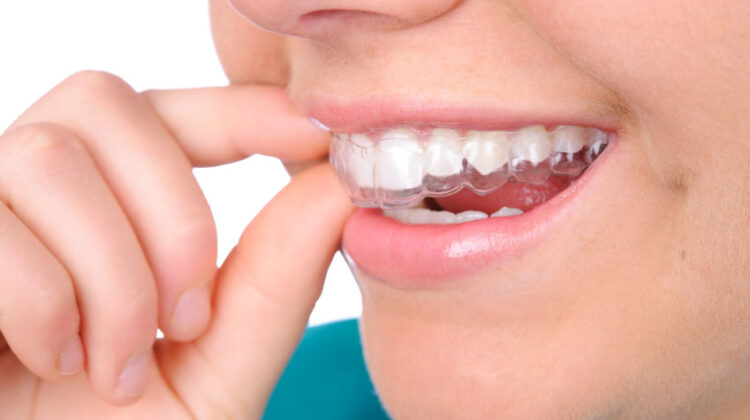
Orthodontic treatment is essential for repositioning crooked teeth, increasing smiles, and promoting oral health. Orthodontists frequently recommend retainers to preserve tooth alignment and guard against relapse. Retainers are custom-made orthodontic appliances typically made of plastic or a combination of plastic and metal wires.
Please maintain retainers to avoid unanticipated problems such as breakage or loss of retainers. If the retainers get broken or warped, they may not exert enough force on the teeth, perhaps leading to relapse or movement. In such circumstances, you may need to seek quick orthodontic assistance, which can be uncomfortable and may disrupt your treatment.
Ensure Daily Cleaning Routine
Rinse your retainers with lukewarm water after removing them from your mouth. Cleaning aids in the removal of any loose dirt or saliva. Regular cleaning aids in eliminating bacteria, preventing smells, and preserving the quality of your retainers.
Brush the front, rear, and sides of all surfaces. To avoid harming the retainers, be thorough yet gentle. Avoid toothpaste since certain types are harsh and can damage the retainer’s components. Use mild soap or a non-abrasive retainer cleaning gel prescribed by your orthodontist.
Overnight Soaking
The cleaning solution may work on your retainers longer by soaking them overnight, efficiently eradicating any built-up stains, germs, and tenacious plaque. The right soaking solution helps eliminate the bacteria responsible for these odors, leaving your retainers fresh and odor-free.
Retainer cleaning tablets are a popular choice since they dissolve in lukewarm water. You can also soak them in denture-cleaning solutions to clean dental equipment, eliminate germs, and freshen them up.
White vinegar is a natural and affordable substitute for soaking retainers. You may soak your retainers in equal lukewarm water and white vinegar. Allow them to soak for 15 to 30 minutes before giving them a good, thorough rinse.
Avoid Using Harmful Cleaning Methods
Cleaning products that include chemicals that might cause allergic responses or irritation of the oral tissues include bleach and alcohol-based cleaning solutions. These compounds can cause allergies, pain, inflammation, or other negative consequences.
Exposure to excessive heat or harsh chemicals can cause your retainers to distort their shape. It may result in an inadequate fit, which reduces their ability to keep teeth aligned and brings discomfort and unequal pressure on the teeth.
Choose safe cleaning procedures and consult Kumra Ortho, Washington, DC, for specific guidelines tailored to your retainers and individual needs.
Store Retainers Properly
You should purchase specific retainer storage. These cases are made especially to keep retainers firmly and safeguard them from harm. Choose a sturdy, well-ventilated, and cleanable case. Avoid storing your retainers in plastic bags, tissue paper, or napkins since they retain moisture, germs, and possibly even foul odors.
Label your retainer case with your name or any other distinguishing mark to prevent confusion and any mix-ups. These are especially crucial in public spaces like gyms or school locker rooms. It guarantees that you use your retainers, which reduces the possibility of contamination.
Retainers may also attract pets owing to their fragrance or texture. Pets may chew on or damage the retainers, and tiny children may ingest or mishandle them accidentally. You can avoid these instances and expensive replacements by putting your retainers out of reach.
Inspect Retainers Regularly for Any Damages
Retainer damage can happen anytime, especially if previous defects go undiscovered. Proactive steps like repairing or replacing retainers can avoid inconvenient damages and maintain uninterrupted wear.
Examine the surface for any obvious sign of deterioration, such as cracks, chips, or breaks. Pay attention to the material for any wear, thinning, or distortion. Gently run your fingers along the surfaces of the retainers to feel for any rough or sharp edges. Smooth any rough spots and see your orthodontist if any repairs are required.
Put on your retainers and see how they fit. Take note of any pain, ill-fitting places, or pressure spots suggesting structural deterioration or form changes. If the retainers no longer fit properly, it may be a sign of deterioration or the need for adjustment.
Handle Retainers With Clean Hands
Retainer materials like plastic, acrylic, or metal wires might be sensitive to chemicals found on dirty hands. Oils, lotions, and certain chemicals may react with the retainer material over time, producing discoloration, degradation, or structural damage. Handling retainers with clean hands protects their material integrity and extends their lifespan.
Throughout the day, our hands touch many germs and bacteria. We unintentionally transfer them to retainers, which can cause infections, mouth pain, and even damage the general hygiene of the orthodontic appliance.
Receive Expert Retainer Care Advice From an Orthodontist
Expert guidance from an orthodontist is crucial for the care and maintenance of your retainers. Experienced orthodontists at Kumra Ortho are committed to providing you with the most excellent treatment and assistance for your retainers. They can guide you with correct cleaning practices and recommendations on retainer replacement options.

